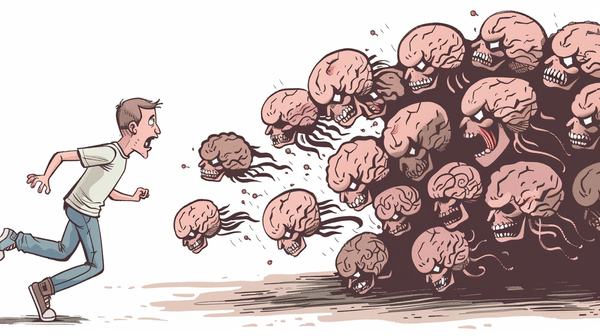Engaged Reading Time - Issue #34
Good morning, and welcome to the first of the revised "links" newsletters. Most of you lovely members opened the "analysis" newsletter on The Correspondent fiasco earlier in the week, but just in case you missed it, my new plan is:
Minimums for members:
- One analysis newsletter a week for members
- One audience engagement links newsletter a week for members
- One "interesting reads" newsletter at the weekend for everyone
I reserve the right to fire off additional newsletters to members as and when interesting things occur.
Please let me know if this format works for you.
Lots of interesting stuff from the last few months (yes, I've been on a tab purge) to share below. I've broken them down by category to make it more useful. Not everything is necessarily new this week —but it's all relevant.
Research

Across seven countries, the average price for paywalled news is about $15.75/month
As paywalls and membership models become more common, this is valuable data. How this shifts once subscription fatigue kicks in will be interesting, though.

Reader loyalty data shows more sessions per visitor from social, more views per session from search
Clear differences in behaviours, here. That could useful inform your strategy of what you do with readers once you have them on site.

Building Subscriptions and Memberships for Quality Journalism
A useful research paper to download and read.

Accelerating dynamics of collective attention
Those of you who have been my students are well aware of how much I bang on about "attention". The rest of you - could yourselves lucky… This is a serious, hard read about the dynamics of it.
Platform Relationships

Did Twitter Keep Tabs on Journalists' Political Leanings?
The examination of the ethics of platform behaviour is beginning to spread beyond Facebook. This is… concerning.

Reach appoints its first Community News Reporters — here’s who they are
Facebook is buying its way into positive PR in the journalism community. Will this last?
Video

Updates to Video Ranking
tl;dr - time to make longer social videos.

Publishers are mostly recycling YouTube videos for IGTV
This is a few months old, but takes on more relevance in the light of the above.

How publishers are using Snapchat’s curated stories tool for breaking news and more
Many outlets have dismissed Snapchat because of the effort required - but this offers an interesting alternative approach. Promising.
Strategy

The Dallas Morning News found a loyal audience when it started covering – wait for it – the weather
I'm always struck by how valuable many audiences find the bread and butter stuff we often dismiss as dull.

"Evergreen newsletters can become a critical part of publishers’ strategies": The HBR approach
Yes. I'm obsessed by newsletters. I admit it. But I think we've only scratched the surface of what they can offer.
Misinformation

The Death Of Local News Is Making Us Dumber And More Divided
One of my pet theories is that the whole of journalism is paying the price of the collapse in local media. Increasing numbers of people have no experience of journalists in their day-to-day life, and that distancing makes them more susceptible to misinformation. This goes some way to supporting that theory.

A Wild Plan to Crowdsource the Fight Against Misinformation
Claire's been on the cutting edge of the fight against misinformation for years. This is a fascinating attempt to systematically challenge it.

Can our corrections catch up to our mistakes as they spread across social media?
Guess. Go on. Guess.

Study: Major media outlets' Twitter accounts amplify false Trump claims on average 19 times a day
And this is the flip side of the above. What happens when we help amplify lies?
Community Psychology

Cleaning Up The Community
Subtracting stuff from your community can be as valuable as adding to it. Good community management can often be thought of as gardening, and this shows why.

The Industrial Revolution of Shame
An interesting look at the dynamics of outrage on social media.

“It gives you the freedom to be violent to other people”: what has the alt account become?
Anonymity and secondary accounts have been a feature of online life since the 90s. There are many good reasons for preserving anonymity — some communities couldn't operate without them — but this is an interesting look at the psychological implications.

The Latest Transphobic Attacks From Comicsgate Falsely Label Others As Transphobic
Many of the tactic we've seen the alt-right deploy on social media were perfected during the games industry spat known as GamerGate. We're now seeing similar things at work with ComicsGate — this is worth watching, given previous patterns. They are successfully getting people banned from Twitter via this tactic.
We’ve seen Carl Benjamin’s rank misogyny before – remember Gamergate?
Talking of GamerGate, here's how it's impacting today's UK politics.



